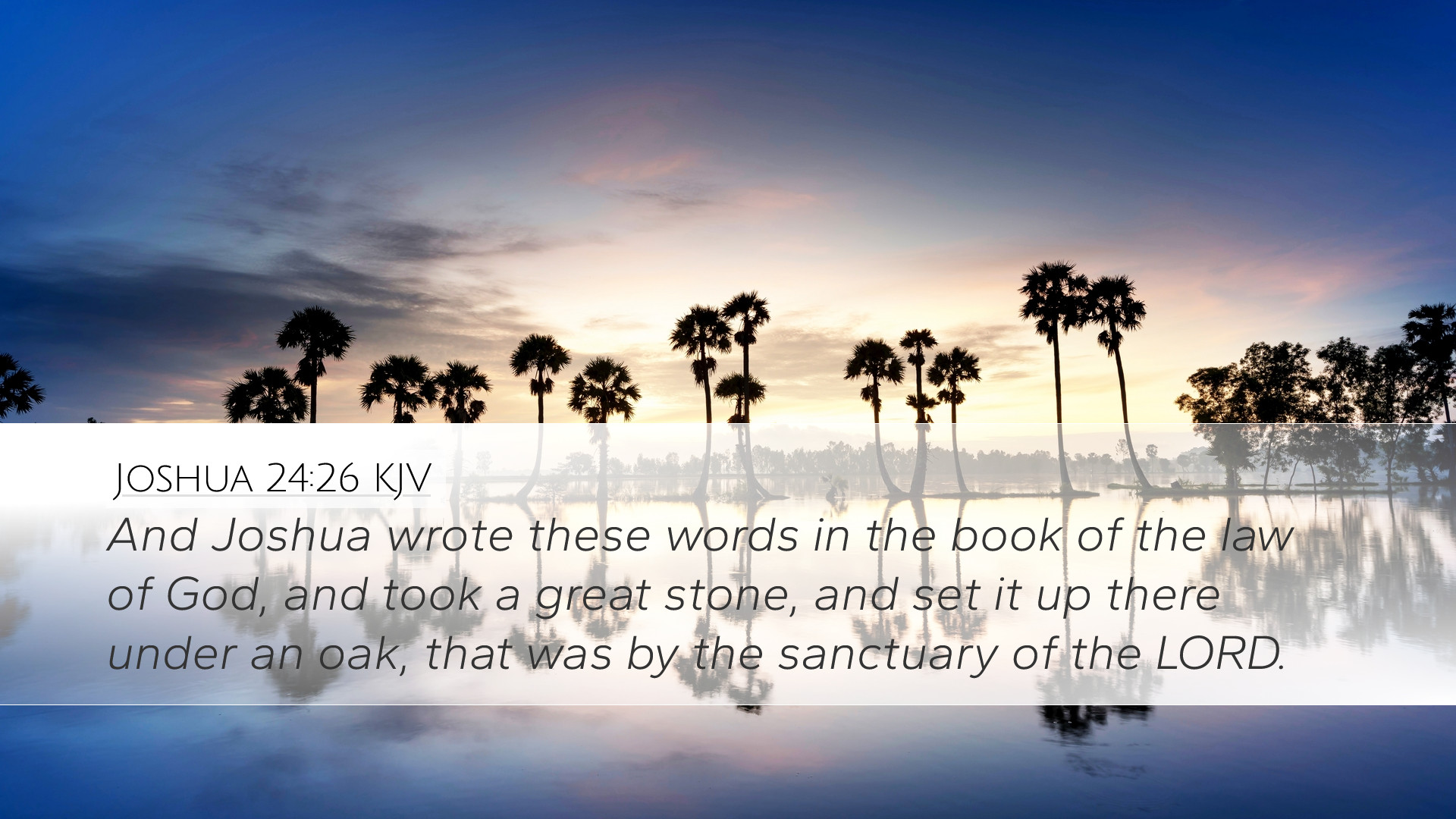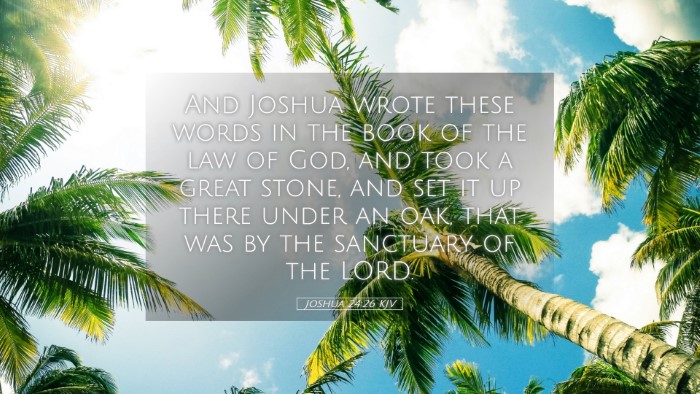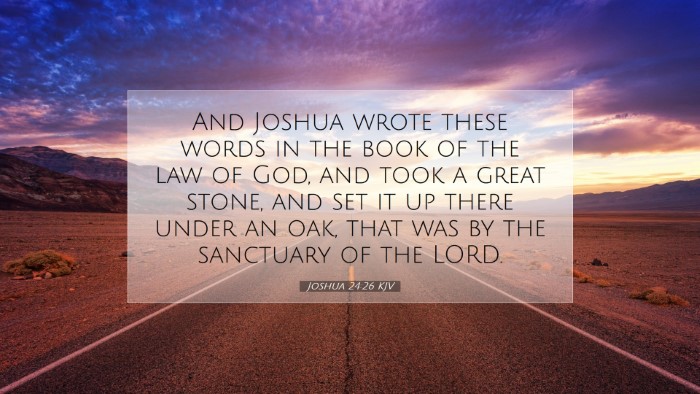Bible Commentary on Joshua 24:26
Bible Verse: "And Joshua wrote these words in the book of the law of God, and took a great stone, and set it up there under an oak, that was by the sanctuary of the Lord."
Introduction
This verse captures a significant moment in Israel's history as Joshua concludes his final discourse to the Israelites. He emphasizes the importance of recording God’s covenant and their commitment to Him. This commentary synthesizes insights from renowned public domain commentators including Matthew Henry, Albert Barnes, and Adam Clarke, providing a comprehensive examination of Joshua 24:26.
1. The Importance of Commitment
In this passage, Joshua’s actions symbolize a public commitment to God:
-
Matthew Henry notes that Joshua's act of writing the words of the covenant serves to solidify the people's obligations to God. By recording it, he ensured the covenant remained in the memory of the people and their descendants.
-
Albert Barnes emphasizes that the act of writing was a necessary measure to preserve the acknowledgment of their relationship with God, highlighting the importance of having tangible reminders of spiritual commitments.
-
Adam Clarke adds that the visible stone set under the oak serves as a memorial for future generations, marking the place where they pledge allegiance to God, indicating that commitment must be public and preserved over time.
2. The Symbolism of the Stone
The stone that Joshua set up is rich in symbolism:
-
Matthew Henry explains that stones in the Bible often represent permanence and stability. This stone stands as an enduring witness to the covenant made between God and Israel.
-
Albert Barnes reflects on the use of stones as memorials throughout the Scripture, suggesting that their purpose was to remind the community of significant divine interventions and commitments that shaped their identity as God’s chosen people.
-
Adam Clarke connects this event to the broader theme of memorials in biblical history, asserting that physical markers like this stone are vital to remembrance – both for encouraging faith and for teaching future generations about their heritage in God.
3. The Role of the Sanctuary
The context of the event matters considerably, given that it occurs near the sanctuary of the Lord:
-
Matthew Henry views the sanctuary as a central place of worship where the people can encounter God. Placing the stone there emphasizes the theological significance of the covenant and serves as a reminder of the sacredness of their vows.
-
Albert Barnes notes that the proximity of the stone to the sanctuary signifies that their commitment is directly tied to their worship practices, reflecting the integration of covenantal living with community interaction with God.
-
Adam Clarke observes that the sanctuary is a dwelling place for God among His people, and thus, the memorial reinforces the relationship between the divine and the community, illustrating the partnership in their ongoing faith journey.
4. Implications for Modern Believers
Joshua 24:26 penetrates beyond its historical context, offering vital lessons for modern believers:
-
Commitment to God: Just as Joshua emphasized the importance of commitment, today’s believers are encouraged to publicly affirm their faith and dedication through various means, including baptism, church membership, and personal testimonies.
-
Remembrance: Modern believers can create their own forms of spiritual memorials – rituals, celebrations, or practices that help them remember God’s faithfulness and the commitments they’ve made to Him.
-
Worship and Covenant: The importance of tying worship to the community’s covenant with God remains vital. Believers today are called to cultivate spaces where they can collectively remember and honor their commitments to God and each other.
Conclusion
Joshua 24:26 stands as a testament to the importance of remembering God’s covenant and the commitments it entails. The insights drawn from the commentaries of Matthew Henry, Albert Barnes, and Adam Clarke emphasize how significant it is to establish visible markers of our faith and ensure that our spiritual commitments are not only made but also remembered and honored. As we reflect on this verse, let us strive to live in a way that aligns our promises with our practice, upheld by the enduring witness of God’s faithfulness.


